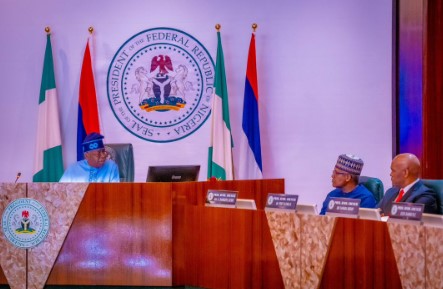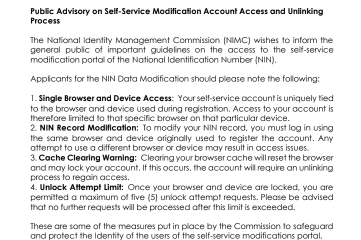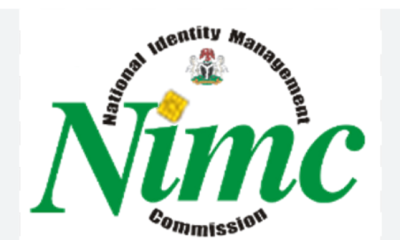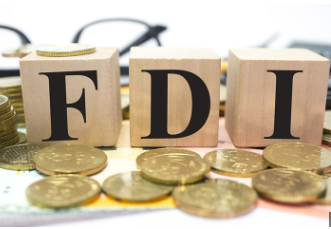Business
Economic Stabilization Bill: Necessary Stimulus for Nigerian Economy
The recent approval of the Economic Stabilization Bill (ESB) by President Bola Ahmed Tinubu’s Federal Executive Council (FEC) marks a critical juncture for Nigeria’s struggling economy. As various economic indicators have veered sharply off course over the past fifteen months, the urgency for a comprehensive strategy to restore stability has never been more pronounced.
Published
1 year agoon

BY – MARCEL OKEKE The approval of an Economic Stabilization Bill (ESB) by the Federal Executive Council (FEC) presided over by President Bola Ahmed Tinubu, a few days ago, is by all consideration, a move at the nick of time.
This initiative comes at a time when practically all economic indicators have veered ‘off track’ in the past fifteen months or so.
Although the Nigerian economy has been on a steep declining gradient for quite a while, the cocktail of policies put in place by the current administration would seem not to have been efficacious enough in achieving the badly needed turnaround.
The crafting and effective implementation of an Economic Stabilization Bill (ESB)therefore is imperative; although the actualization of such a Bill (or Law) would only be a necessary but not sufficient strategy to fully pull the economy out of the woods.
With inflation rate still on a runaway trend (32.15% at end-August); Naira exchange rate in the forex (FX) market yet unstable for over a year; interest rate as indicated by the Monetary Policy Rate (MPR) hitting 27.25%; and multiplicity of taxes subsisting—the economy badly needed some stability for real growth to commence.
It is therefore timely that the report of the Presidential Fiscal and Tax Reforms Committee (PFTRC) has provided the fulcrum for an ESB that is part of the Federal Government’s Accelerated Stability and Advancement Plan (ASAP).
According to a synopsis shared by the Chairman of PFTRC, Mr. Taiwo Oyedele, the FEC-approved ESB seeks to amend about 15 different tax, fiscal, and establishment laws “to facilitate economic stability and set the country on the path to sustained, and inclusive growth.”
From the PFTRC kit, the key objectives of the ESB would include inflation reduction and general price stability; export promotion and diversification; enhancing job creation and poverty alleviation; promoting fiscal discipline and consolidation.
ALSO READ : Mixing Politics and Economics in Ongoing Nigerian Banks’ Recapitalization
Others include complementing monetary policy measures with appropriate fiscal interventions to strengthen Naira, and sustaining exchange rates convergence. In pursuit of these objectives, the FEC also approved ten changes to some existing legislation to spur economic growth and development.
The proposed changes with appropriate commentaries are as follows:
- “Amendments to the income tax laws to facilitate employment opportunities for Nigerians in Nigeria within the global value chain, including the digital economy.” This proposal is quite apposite, given that the negative impacts of the multiplicity of taxes and levies on businesses and persons over the years have been some of the key disincentives to corporate entities in Nigeria. A harmonization and simplification of these taxes at this time is therefore most likely to provide the much needed stimulus to the economy.
- “Zero-rated VAT and improved incentive regime to promote the export of goods, services, and intellectual property.” While zero-rated VAT could have its attractions, the Government must be mindful of the revenue-loss implications of such a policy. It is no brainer that Government should not only promote but also simplify the process of (non-oil) exports, including intellectual property. However, all the red-tapes and bureaucratic bottlenecks on the export value chain in the country must be collapsed expeditiously. Agencies and institutions that usually constitute irrelevant ‘gatekeepers’ on the export ‘highway’ must exit immediately.
- “Amendments to facilitate investment in the gas sector and simplify local content requirements to ensure competitiveness.” Here, while it is good that the emphasis is not on crude oil, but gas—attention must be on ‘green energy,’ generally. Nigeria has gotten bogged by ‘Dutch Disease’ over the years while focusing solely on crude oil. Gas and a multiplicity of renewable energy sources should be accorded the deserved priority—in the moves to attract investments. This will include the necessary changes to local content restrictions that may have been inhibiting some potential investors.
- “Reform of the foreign exchange regime to enhance the regulatory powers of the CBN, unlock more forex liquidity, strengthen the Naira, and sustain rates convergence.” This must involve tinkering with the full floatation of the Naira that took effect in June 2023. A more cautious forex management approach is imperative; with a high accent on the supply side. Improved crude oil production and exports; enhanced Diaspora remittances; and export proceeds repatriation must be encouraged through appropriate initiatives.
ALSO READ : Again, fuel subsidy debacle and Nigeria’s future
- Tax reliefs for private sector employers in respect of wage awards and transport subsidies provided to their employees.” This proposal is still borne out of the palliatives mindset that has not done the economy any discernible good so far. While tax reliefs are good for private sector businesses, there is hardly any guarantee that the gains from such reliefs must be deployed to ‘wage awards and transport subsidies.’ On a sustainability consideration, transport and sundry allowances have always been part of employee welfare packages of most private sector employers in Nigeria.
- “Tax reliefs to companies that generate incremental employment and retain such employees for a minimum of three years.” Again, this is a great idea which, if effectively implemented, has the potential to exponentially drive employment generation. But the key risk lies with the monitoring of all hues of businesses on a sustainable basis to capture the authentic data.
- “Fiscal discipline and enhancement of remittances from government agencies and corporations to the Consolidated Revenue Fund of the Federal Government.” This, also, is a noble idea; but deeply entrenched fiscal indiscipline has been the bane of Nigeria’s public finance and fiscal policy management over the years. The current proposal therefore calls for properly articulated and enforceable checks and balances in the officialdom. Otherwise, this new proposal will end up as a mere ‘good intention.’
- “Collaboration with states to suspend certain taxes on small businesses and vulnerable populations, including road haulage levies and other charges on transportation of goods.” The challenge with this proposal will be the lack of effective monitoring architecture, especially in the hinterlands. Most sub-national governments have gotten used to numerous legal and illegal taxes and levies—with so many roadblocks usually mounted at several points on every road for the collection of such taxes. Fake taxmen and touts thrive on this vocation in locations across the country; and most state governments, in their desperation for improving their internally-generated revenue (IGR), covertly allow these illicit tax drives.
- “Introduction of a “Tax Identification Consolidation and Collaboration (TICC)” initiative to expand the tax base and create a level playing field for businesses.” This is a great idea. Its expeditious implementation would require the use of existing data such BVN and NIN—and their harmonization. Embracing data harmonization and integration could streamline tax identification processes and enhance efficiency.
“Provision of additional funding for the Student Loan Scheme.” This is a politic proposal; but Government must ensure the integrity and transparency of the scheme at all times.
ALSO READ : Dangers of Increased ‘Ways & Means’ Loans for Nigeria’s Government
Beyond these ten proposed changes however, it is imperative that appropriate measures be taken to improve crude oil production and refining in the country.
An expeditious turnaround of the Nigerian economy must be driven by deliberate reduction in importation of refined petroleum products (especially Premium Motor Spirit, PMS). Local refining must be encouraged and developed.
Similarly, improved forex inflow from crude oil sales still holds the aces to significantly address the lingering FX shortage in Nigeria.
Overall, the ESB as an ambitious proposal requires the buy-in of a wide spectrum of stakeholders.
The Federal Government should not relent in the engagement of all relevant groups and persons.
It must deploy the critical political will in the execution of the content of the Economic Stabilization Bill (ESB) to achieve the desired results.
This is because the ESB is not a ‘Silver Bullet,’ but a strategy proposal that has the potential to jumpstart the economy for accelerated growth and development.
The author, Okeke, a practising Economist, Business Strategist, Sustainability expert and ex-Chief Economist of Zenith Bank Plc, lives in Lekki, Lagos.
He can be reached via: [email protected] (08033075697 SMS only.
Economic, Stabilization Bill ,(ESB) ,Federal ,Executive ,Council , President Bola Ahmed Tinubu, The Federal Government,crude oil, production,BVN,NIN, Chairman of PFTRC, Mr. Taiwo Oyedele,
You may like


NIMC warns Nigerians of strict access rules for NIN Self-Service modification portal


NIMC issues public advisory on NIN Self-Service portal access and unlinking procedures


NIMC strengthens drive for inclusive, Secure digital identity system across Nigeria


NIMC restores NIN verification services nationwide after system maintenance


Federal Government to develop National Trauma Care policy


Nigerian Economy and Diminishing Foreign Direct Investment
Trending

 Health6 days ago
Health6 days agoDeclassified CIA memo explored concealing mind-control drugs in vaccines

 Entertainment1 week ago
Entertainment1 week agoSimi addresses resurfaced 2012 tweets amid online backlash

 Crime7 days ago
Crime7 days agoSenior police officers faces retirement after Disu’s appointment as acting IGP

 Comments and Issues1 week ago
Comments and Issues1 week ago20 Critical Fixes to Save Nigeria’s Democracy from Electoral Fraud

 Latest1 week ago
Latest1 week agoICPC yet to respond to El-Rufai’s bail request as arraignment date looms

 Football1 week ago
Football1 week agoMartínez ruled out of Everton clash with calf injury

 Comments and Issues1 week ago
Comments and Issues1 week agoGovernance Before Guns: Why Institutional Coherence Determines Security Outcomes

 Comments and Issues1 week ago
Comments and Issues1 week agoWho owns Abacha’s loot? Nigeria and the fight for the people’s money

